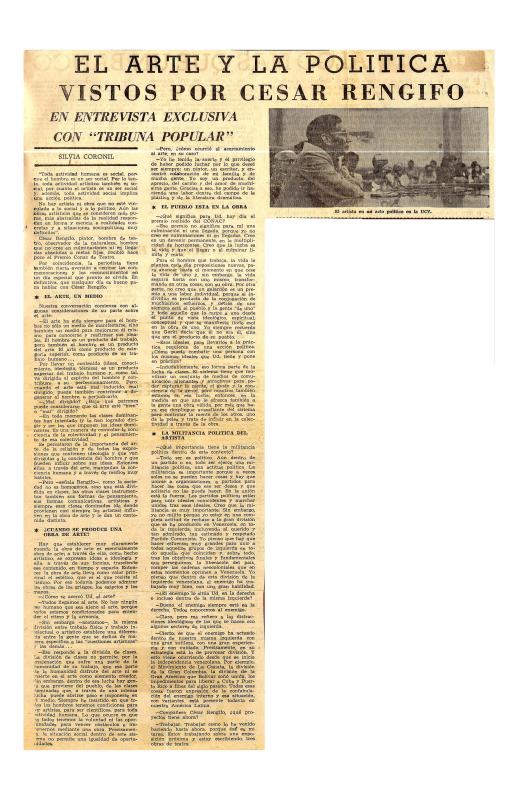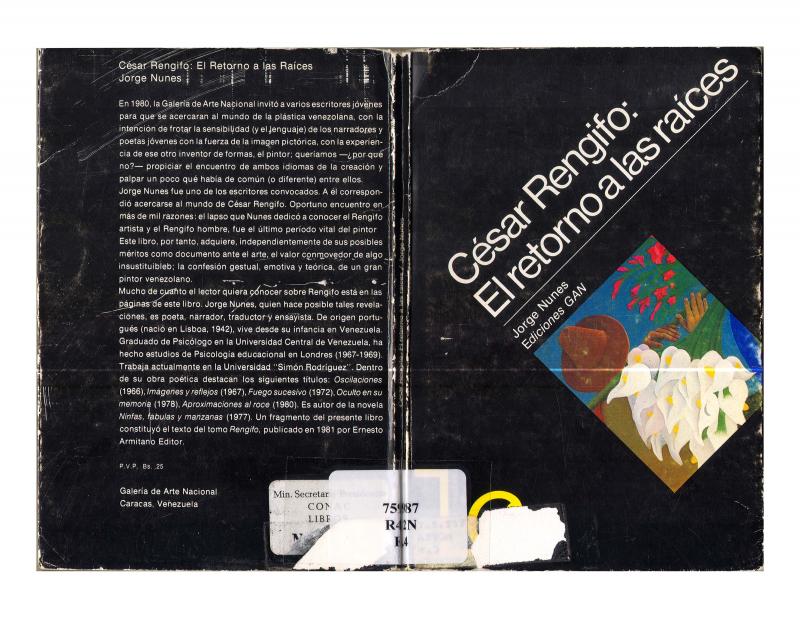Aesthetic, political, and ideological commitment marked the life and work of Venezuelan artist Cesar Rengifo (1915–80). This was enough to send him to prison on different occasions, as well as for him to be exiled; the life and work of the artist were conceived as a pedagogical-doctrinarian-aesthetic program within which ideology plays the principal role. In this sense, one may perceive his indomitable anti-imperialistic spirit, his condemnation of Venezuela’s economic, social, political, and psychological dependence, a kind of nationalism with roots in the recuperation of the ancestral beliefs of American man, the exaltation of the Latin American sentiment for liberation, faith in art and culture as a transformational tool for the social consciousness of the people, as well as the rigid courage of his convictions that marked his final days. These were the components of the pedagogical-doctrinarian-aesthetic program that was built on his ideology.
For additional information on Rengifo, see in the ICAA digital archive the interview with the artist conducted by the Venezuelan journalist Silvia Coronil, “El arte y la política vistos por César Rengifo. En entrevista exclusiva con ‘Tribuna Popular’” (doc. no. 1172426), wherein Rengifo talks about his winning the CONAC prize; as well as the one by writer Jorge Nunes, “César Rengifo: El retorno a las raices” (doc. no. 1101822), wherein he speaks about his return from Mexico.


